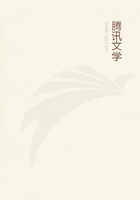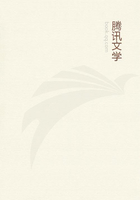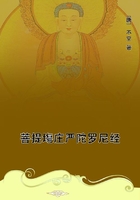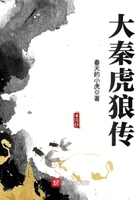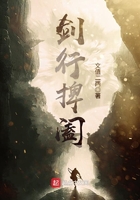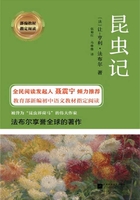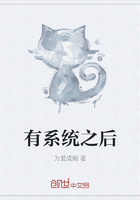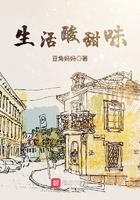"Once Papa lent my sister Maria a book. It was an old geography-book; she wrote on its blank leaf, 'Papa lent me this book.' This book is a hundred and twenty years old; it is at this moment lying before me. While I write this I am in the kitchen of the Parsonage, Haworth; Tabby, the servant, is washing up the breakfast-things, and Anne, my youngest sister (Maria was my eldest), is kneeling on a chair, looking at some cakes which Tabby has been baking for us. Emily is in the parlour, brushing the carpet. Papa and Branwell are gone to Keighley. Aunt is up-stairs in her room, and I am sitting by the table writing this in the kitchen. Keighley is a small town four miles from here. Papa and Branwell are gone for the newspaper, the 'Leeds Intelligencer,' a most excellent Tory newspaper, edited by Mr. Wood, and the proprietor, Mr. Henneman. We take two and see three newspapers a week. We take the 'Leeds Intelligencer,' Tory, and the 'Leeds Mercury,' Whig, edited by Mr. Baines, and his brother, son-in-law, and his two sons, Edward and Talbot. We see the 'John Bull;' it is a high Tory, very violent. Mr. Driver lends us it, as likewise 'Blackwood's Magazine,' the most able periodical there is. The Editor is Mr. Christopher North, an old man seventy-four years of age; the 1st of April is his birth-day; his company are Timothy Tickler, Morgan O'Doherty, Macrabin Mordecai, Mullion, Warnell, and James Hogg, a man of most extraordinary genius, a Scottish shepherd. Our plays were established; 'Young Men,' June, 1826; 'Our Fellows,' July, 1827; 'Islanders,' December, 1827.
These are our three great plays, that are not kept secret.
Emily's and my best plays were established the 1st of December, 1827; the others March, 1828. Best plays mean secret plays; they are very nice ones. All our plays are very strange ones. Their nature I need not write on paper, for I think I shall always remember them. The 'Young Men's' play took its rise from some wooden soldiers Branwell had: 'Our Fellows' from 'AEsop's Fables;' and the 'Islanders' from several events which happened.
I will sketch out the origin of our plays more explicitly if Ican. First, 'Young Men.' Papa bought Branwell some wooden soldiers at Leeds; when Papa came home it was night, and we were in bed, so next morning Branwell came to our door with a box of soldiers. Emily and I jumped out of bed, and I snatched up one and exclaimed, 'This is the Duke of Wellington! This shall be the Duke!' When I had said this, Emily likewise took up one and said it should be hers; when Anne came down, she said one should be hers. Mine was the prettiest of the whole, and the tallest, and the most perfect in every part. Emily's was a grave-looking fellow, and we called him 'Gravey.' Anne's was a queer little thing, much like herself, and we called him 'Waiting-Boy.'
Branwell chose his, and called him 'Buonaparte.'"The foregoing extract shows something of the kind of reading in which the little Brontes were interested; but their desire for knowledge must have been excited in many directions, for I find a "list of painters whose works I wish to see," drawn up by Charlotte when she was scarcely thirteen:-"Guido Reni, Julio Romano, Titian, Raphael, Michael Angelo, Correggio, Annibal Caracci, Leonardo da Vinci, Fra Bartolomeo, Carlo Cignani, Vandyke, Rubens, Bartolomeo Ramerghi."Here is this little girl, in a remote Yorkshire parsonage, who has probably never seen anything worthy the name of a painting in her life, studying the names and characteristics of the great old Italian and Flemish masters, whose works she longs to see some time, in the dim future that lies before her! There is a paper remaining which contains minute studies of, and criticisms upon, the engravings in "Friendship's Offering for 1829;" showing how she had early formed those habits of close observation, and patient analysis of cause and effect, which served so well in after-life as handmaids to her genius.
The way in which Mr. Bronte made his children sympathise with him in his great interest in politics, must have done much to lift them above the chances of their minds being limited or tainted by petty local gossip. I take the only other remaining personal fragment out of "Tales of the Islanders;" it is a sort of apology, contained in the introduction to the second volume, for their not having been continued before; the writers had been for a long time too busy, and latterly too much absorbed in politics.
"Parliament was opened, and the great Catholic question was brought forward, and the Duke's measures were disclosed, and all was slander, violence, party-spirit, and confusion. Oh, those six months, from the time of the King's speech to the end! Nobody could write, think, or speak on any subject but the Catholic question, and the Duke of Wellington, and Mr. Peel. I remember the day when the Intelligence Extraordinary came with Mr. Peel's speech in it, containing the terms on which the Catholics were to be let in! With what eagerness Papa tore off the cover, and how we all gathered round him, and with what breathless anxiety we listened, as one by one they were disclosed, and explained, and argued upon so ably, and so well! and then when it was all out, how aunt said that she thought it was excellent, and that the Catholics could do no harm with such good security! I remember also the doubts as to whether it would pass the House of Lords, and the prophecies that it would not; and when the paper came which was to decide the question, the anxiety was almost dreadful with which we listened to the whole affair: the opening of the doors; the hush; the royal dukes in their robes, and the great duke in green sash and waistcoat; the rising of all the peeresses when he rose; the reading of his speech--Papa saying that his words were like precious gold; and lastly, the majority of one to four (sic) in favour of the Bill. But this is a digression," &c., &c.
This must have been written when she was between thirteen and fourteen.

